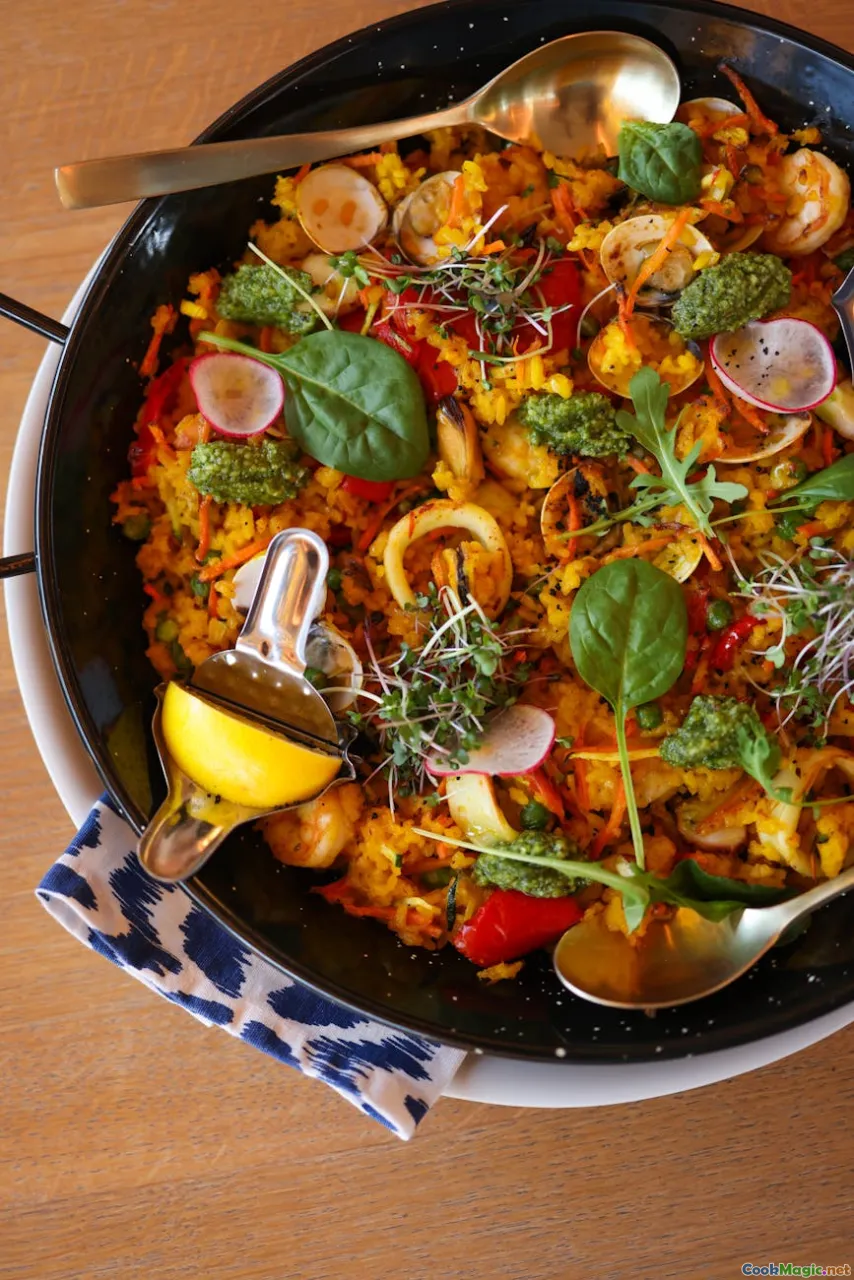Elevating Everyday Meals with Montenegrin Herbs
8 min read Discover how Montenegrin herbs transform simple dishes into aromatic, flavorful experiences, blending history, culture, and nature’s bounty. April 27, 2025 04:00
Elevating Everyday Meals with Montenegrin Herbs
Imagine a small, sun-drenched village nestled along Montenegro’s rugged coastline, where the air is thick with fragrant herbs and the scent of freshly grilled fish. Here, centuries-old traditions intertwine with the vibrant landscape, giving rise to a culinary culture that celebrates the purity and richness of nature’s bounty. At the heart of this gastronomic tapestry are Montenegrin herbs—simple yet powerful ingredients that have the remarkable ability to elevate everyday meals into sensory experiences.
The Cultural and Historical Significance of Montenegrin Herbs
Montenegro, a jewel in the Balkan Peninsula, boasts a diverse topography—from the towering peaks of the Durmitor to the lush plains of the Zeta River valley. This varied landscape has nurtured a rich herbal flora that locals have harvested for generations. Herbs such as wild thyme, oregano, rosemary, bay leaves, and savory are more than just ingredients; they embody the soul of Montenegrin culinary identity.
Historically, these herbs were used not only for flavoring but also for medicinal purposes, believed to promote health and well-being. Passed down through oral tradition, recipes and herbal remedies became intertwined, creating a culinary heritage rooted in respect for nature and simplicity.
The Sensory Symphony of Montenegrin Herbs
What makes Montenegrin herbs so special? It’s their aromatic intensity and earthy depth. Wild thyme, for instance, releases a warm, slightly minty scent when crushed, evoking images of mountain meadows. Oregano, with its pungent, peppery aroma, intensifies dishes with a savory punch. Rosemary’s pine-like fragrance adds a woody complexity, while bay leaves lend a subtle bitterness that balances flavors.
Imagine slicing into a freshly grilled trout, its skin crisped to perfection, and garnished with sprigs of rosemary and thyme. The herbs release their fragrant oils into the air, mingling with the smoky aroma of the grill, creating an irresistible aroma that beckons family and friends to gather.
Herbal Staples in Montenegrin Cuisine
Wild Thyme (Majčina Sna)**
Wild thyme is perhaps the most emblematic herb of Montenegrin mountains. It’s used liberally in stews, roasted meats, and even in homemade bread. Its scent alone transports one to a hillside pasture, where the herb grows profusely among rocks and wildflowers.
Oregano (Origano)
Oregano is a cornerstone in the preparation of pasticada, a slow-cooked beef dish, and is sprinkled atop freshly baked bread or mixed into vegetable salads. Its robust flavor enhances the rustic simplicity of local dishes.
Rosemary (Rožmarin)
Rosemary’s woodsy aroma complements grilled meats and fish, especially during summer barbecues. A sprig tucked into a roasting pan infuses the meat with a fragrant, savory note.
Bay Leaves (Lovor)
Bay leaves are essential in soups, broths, and marinades, imparting a subtle bitterness that balances acidity and richness.
Practical Tips for Using Montenegrin Herbs
Bringing these herbs into your kitchen, even if you’re miles away from Montenegro, is easier than you might think. Here are some tips:
- Fresh vs. Dried: Whenever possible, opt for fresh herbs, which offer a more vibrant aroma and flavor. Dried herbs are convenient and have a concentrated essence, ideal for slow-cooked dishes.
- Harvesting and Storage: If you have a garden or access to wild herbs, harvest them at their peak, preferably in the morning after dew has evaporated. Store dried herbs in airtight containers away from sunlight.
- Layering Flavors: Use herbs at different stages of cooking. For example, add bay leaves early in the simmering process and sprinkle fresh oregano at the end for a burst of freshness.
- Herb Combinations: Experiment with combining herbs like thyme and rosemary for roasting vegetables, or oregano and bay leaves for hearty stews.
Elevating Everyday Dishes with Montenegrin Herbs
Breakfast: Herb-Infused Eggs and Bread
Start your day with a slice of crusty bread topped with a brush of olive oil and a sprinkle of chopped thyme and oregano. Serve with scrambled eggs seasoned with fresh herbs—simple, fragrant, and energizing.
Lunch: Montenegrin Bean Soup (Pasulj)
This hearty soup benefits immensely from the addition of bay leaves and thyme during simmering. Finish with a drizzle of olive oil and a handful of fresh parsley for brightness.
Dinner: Grilled Fish or Meat
Marinate your fish or chicken with rosemary, garlic, and lemon juice, and garnish with fresh herbs before serving. The aroma alone elevates the dish to a new level, making it feel like a special occasion.
Snacks and Sides: Herb-Infused Olives and Pickles
Add sprigs of thyme or oregano to your pickling brine for an aromatic twist. These herbs impart complex flavors that complement the sharpness of vinegar and the brininess of olives.
Personal Reflections and Cultural Insights
In my journeys through Montenegro, I’ve often found myself captivated by the simplicity and depth of its herbal traditions. Sitting around a rustic table, the air thick with herbal scent, I learned from local cooks that the true magic lies in respecting the ingredients—using herbs not just as flavor enhancers but as carriers of history, memory, and identity.
I recall a grandmother in a coastal village, her hands deftly picking wild herbs as the sun set behind the mountains. Her stories intertwined with her cooking, revealing how each herb was a gift from the land—wild, free, and full of life.
Final Thoughts: Bringing a Piece of Montenegro to Your Kitchen
Incorporating Montenegrin herbs into your daily cooking is more than just a flavor upgrade; it’s an invitation to connect with a tradition that celebrates nature’s purity and the art of simple, honest food. Whether you forage in your garden, visit local markets, or order dried herbs online, these ingredients hold the power to transform ordinary meals into extraordinary moments.
So, embrace the fragrant, earthy world of Montenegrin herbs. Let their aroma fill your kitchen, and allow your culinary creations to carry the spirit of Montenegro—wild, vibrant, and deeply rooted in tradition.









